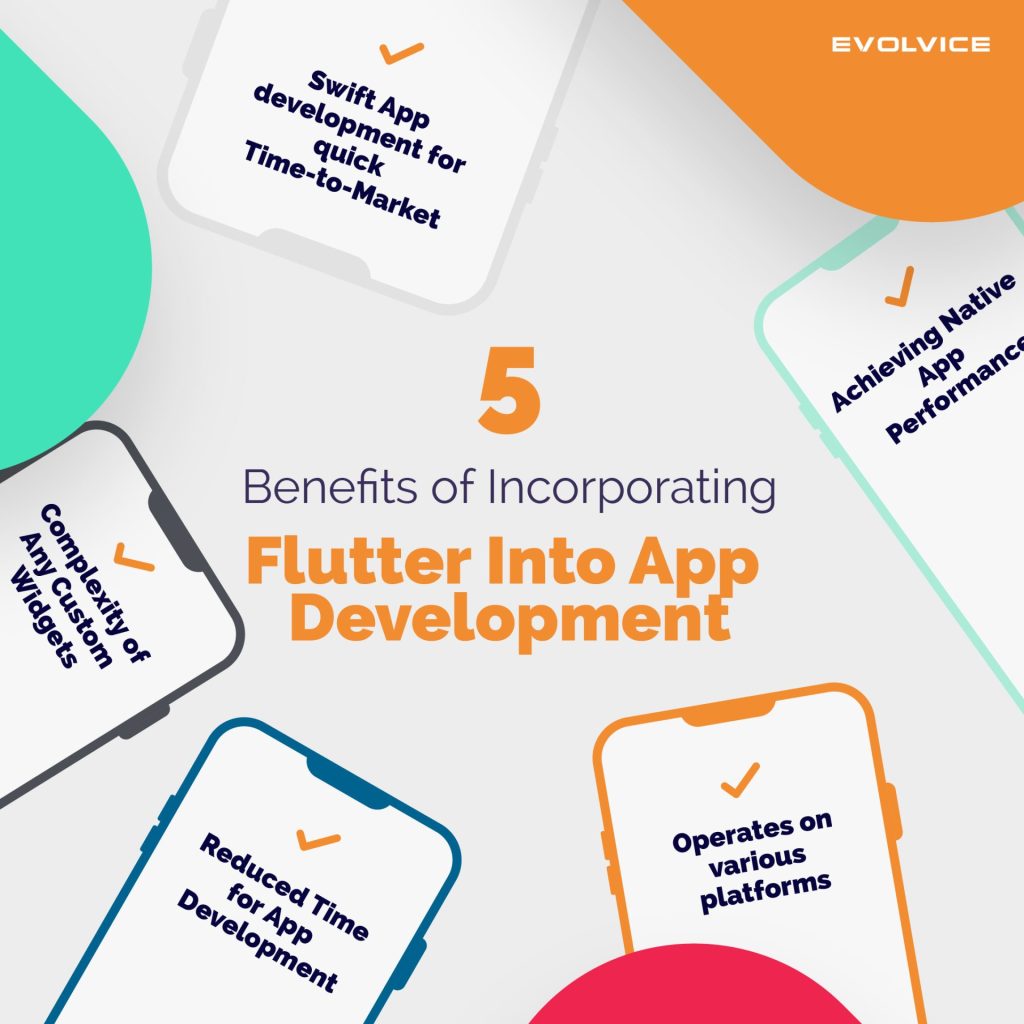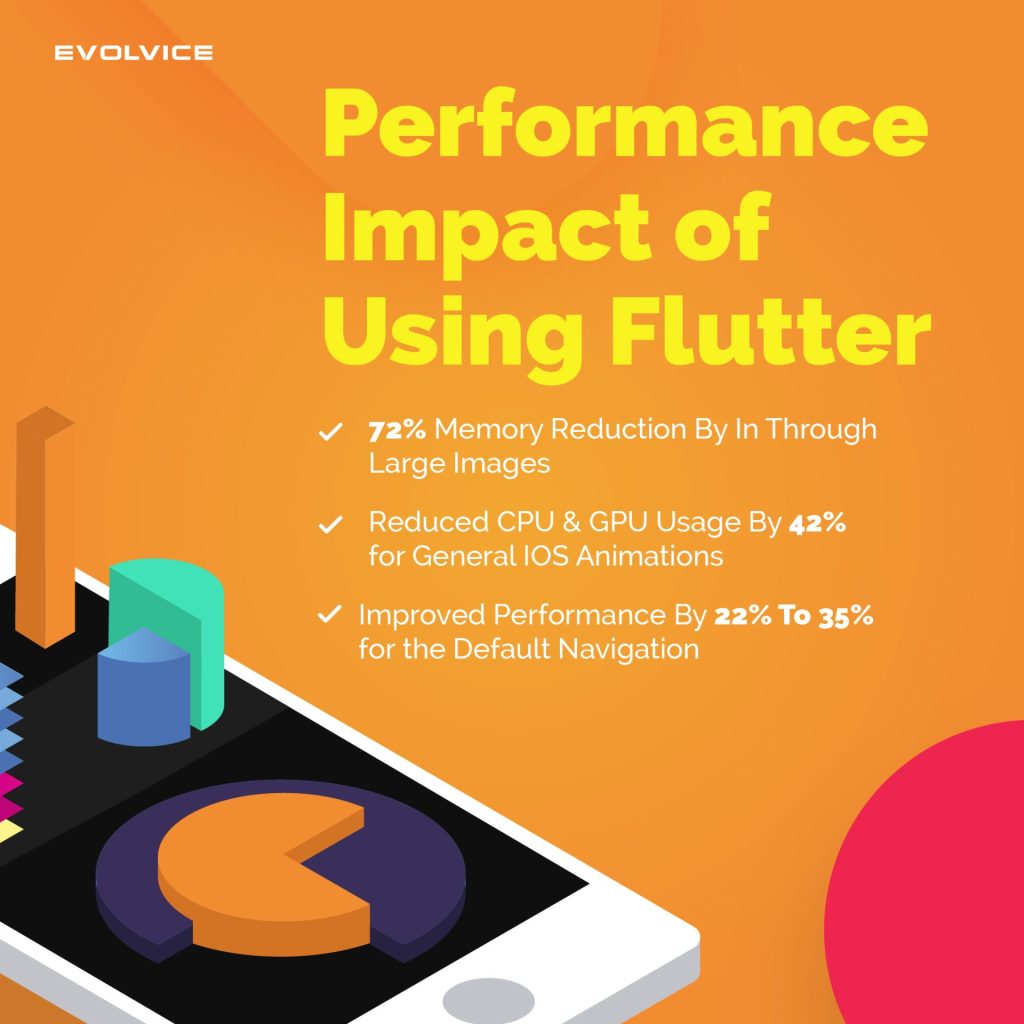Flutter’s open-source software development kit has recently gained popularity and enables cross-platform mobile app development, making it an excellent choice for Nearshore software development and Outsourcing software development. The toolkit has gained popularity among Nearshore software developers because it is perfect for developing commercial applications. It is as appropriate as everyone communicates and is even better because several companies have already noticed. Currently, this toolkit is used by 2 million developers globally. As a result of the perfect choice for creating natively compiled apps, the demand for Nearshore software solutions utilizing Flutter mobile app development is increasing. But what exactly is Flutter, and why do companies like Google and Alibaba prefer it over other cross-platform frameworks for app development? This blog aims to introduce you to Flutter, explain its advantages, and explain why industry leaders favor it. Let’s take a closer look at the top five advantages of utilizing Flutter for outsourcing.
What is Flutter?
The Flutter framework is an open-source, cross-platform application development tool that allows developers to create mobile, desktop, and web apps with the same code base. One of the advantages of Flutter is that developers only have to write code once, and it can be applied to all platforms.
What Are the Benefits of Using Flutter for App Development?
In addition to connecting native apps with the compliance of cross-platform development, Flutter provides several reasons for developers to choose it. It restores the same look as a native app and draws the same user interface from scratch. Furthermore, unlike other frameworks, it does not act as a wrapper over native UI components.
As Flutter is open-source, any company with an application built on it can share it on GitHub. Individuals and companies prefer to use Flutter and contribute to improving it based on their resources.
Eager to make two applications for the price of one. They had a project on Xamarin/Ionic/Cordova but were seeking a more flexible platform. Developers choose apps built on Flutter because they need more time and resources to develop the app if they have outdated native apps that are expensive to build and maintain.

There are 5 Benefits of Incorporating Flutter Into App Development
Switching to Flutter app development can give your business undeniable value. Let’s go through them.
1. The Flutter framework can operate on various platforms
It allows mobile software on various platforms to utilize the same logic and user interface. In contrast to other frameworks, Flutter allows the use of the same reason and user interface for mobile software running on different platforms. No additional platform-specific UI elements are required for the application, as it works directly with a canvas.
2. Reduced Time for App Development
Flutter saves the programmer’s time in all stages of software engineering, from UI construction to testing. As a tool for workflow optimization, it relies on ready-made widgets, which enable engineers to skip several time-consuming steps while making native-looking applications. In addition, its SDK features a ‘hot reload’ feature that prevents time loss when shipping ready-made solutions to test devices.
3. Swift App development for quick Time-to-Market
Flutter guarantees a shorter time-to-market period. Programmers can create a single codebase for different platforms, creating a single codebase for all platforms. Furthermore, the framework provides a declarative API for creating an interface that will improve performance during visual adjustment procedures. Which leads to faster time-to-market app development
4. One Step Towards Achieving Native App Performance
The user experience is highly dependent on the performance of the application. Flutter-built applications exhibit performance that is almost as good as native solutions in terms of performance. In contrast to other popular cross-platform frameworks, Flutter does not require any additional mediator code representatives to interact directly with the machine code. Therefore, interpretation bugs are eliminated, and performance is improved.
Flutter developers made a bet on performance: Memory reduction by 72% in fast scrolling through large images. They reduced CPU and GPU usage by 42% for general iOS animations—and improved performance by 22% to 35% for the default navigation. 1
5. Complexity of Any Custom Widgets
Flutter provides a variety of platform-specific widgets that allow engineers to follow Material Design or Cupertino design guidelines easily. Further, all devices can be customized in terms of color, shape, element transitions, shadow manipulations, clipping, and other transformations.

Deciding Between Native and Cross-Platform App Development: Which Strategy is Best?
Companies must resolve the leading dilemma before developing Flutter apps. Well, the struggle between developing native and cross-platform applications has always existed. This technology stack consists of Objective-C, Swift, Apple Xcode, iOS SDK (for iOS apps), Java, Kotlin, Android Studio, and SDK tools (for Android-based app development), which offer a high degree of compatibility.
Specifically, applications developed for a platform perform better, offer broader opportunities, and appear and feel more natural. In this case, they have to mature an application for each other operating system separately (if they are selling a business product targeting a variety of platforms). In addition to more work hours and people involved, native development is more expensive. However, if your target audience is limited to one operating system, native development will suffice.
Furthermore, cross-platform frameworks such as React Native, Flutter, and Xamarin allow developers to create a single application compatible with multiple platforms. Cross-platform development appears highly cost-effective for broad target audiences due to the reduced time-to-market and expenses associated with developing one project rather than two or more. However, its compatibility is lower than native solutions, and performance optimization will require more effort.
The problem is that despite the abundance of mobile software development solutions, they can only be treated as a universal option. React Native has dominated the market for the last few years because of its simplicity and cost-effectiveness. In the meantime, Flutter raises as a new, ambitious cross-platform framework, challenging the supremacy of React Native and providing an alternative to developers. However, Flutter development has its perks and challenges, like any other technology.
A Business-Centric Perspective on Flutter
Several criteria should be met as part of a framework, including platform stability, high performance, prospects for further improvement, and a broad talent pool from a business perspective. As the reward is not guaranteed in most cases, as these risks typically include direct or vicarious overspending, in case even one of these criteria is neglected, using a framework becomes risky.
Even though Flutter is just a framework, it has already gained credibility from Google and has already minimized these risks. Furthermore, it has strong support from other market giants (such as Alibaba, eBay, and MGM Resorts) and appears to have expanded prospects after the release of Fuchsia OS.
Flutter programming is popular among developers (particularly cross-platform and Android engineers). Due to the direct communication with Canvas and the absence of bridges for accessing services, this technology is more performant than other cross-platform frameworks. Suppose you are wondering where you can find Flutter developers. At Evolvice, we have access to 500,000 talents globally and can provide you with a dedicated team of developers to integrate smoothly into your in-house team.
Conclusion
Using Flutter to build apps has numerous benefits compared to native or other cross-platform options, especially in the context of Nearshore software development and Outsourcing software development. These include increased cost-efficiency, faster development timelines, and superior performance when compared to native platforms. While its ecosystem and community may be smaller and less advanced than other platforms like React Native, it is continuously expanding, making it an excellent choice for Nearshore software developers.
Hence, the utilization of Flutter for app development can prove to be highly beneficial for companies that collaborate with skilled Flutter developers on mutually advantageous agreements, particularly in Nearshore software solutions. Google’s Fuchsia OS, designed and promoted by them, supports the use of Flutter for running applications, providing a promising outlook for the future. As Flutter becomes more widely adopted globally, businesses that possess proficiency in this framework will undoubtedly have an edge over those who disregarded it in the past.
If you are in the process of comprehending the benefits of utilizing Flutter in your upcoming project, or if you are in search of a company that specializes in developing Flutter apps, do not hesitate to reach out to us at Evolvice. With a dedicated team of skilled Flutter developers who will seamlessly integrate into your in-house team, we have all the necessary resources to create a personalized Flutter application that meets your requirements.


